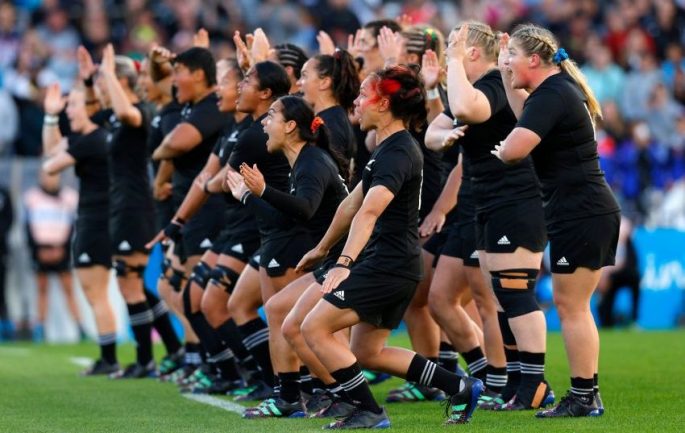The draw is made. At last World Rugby has provided precise details for the biggest event of the year alongside all the other information that has been available for a long while.
To nobody’s surprise, there is no question of a ‘blind’ draw. The programme has been carefully structured to ensure the greatest drama, the largest gates, and the most financially rewarding outcome.
England simply had to meet New Zealand at the very end of the pool stages, and in Auckland, though Eden Park is not the chosen venue.
That is the first issue to cause a minor rumpus in Kiwi circles. The ground authorities at Eden Park, very much the sacred temple of NZ rugby, are said to be less than delighted with the decision to play the biggest of the matches at the Warriors’ ground, the Mount Smart Stadium, a dozen miles to the south. Sponsorship and other rights are in play, it seems.
One direct consequence is that visiting teams won’t have history weighing heavily on their shoulders; All Blacks and Black Ferns sides simply don’t get beaten at the largest stadium in the country.
England’s sequence
The Red Roses’ three games follow like this:
1. v the Wallaroos, 20 October, Wellington
2. v the Maple Leafs, 28 October, Dunedin
3. v Black Ferns, 4 November, Auckland
This trio of matches neatly replicates the programme of the International Series of 2017 held also in Aotearoa, a few weeks before the Ireland World Cup.
On that tour Australia caused a minor upset by scoring first against England, but went down eventually 10-53. Next the Canadians proved the doughty warriors they always are, going down only 20-27 in a dramatically close match. The climax came at Rotorua, where England beat New Zealand under lights (and rain) far more easily than the score 29-21 suggests.
Of that touring squad the following players are still contracted: Sarah Bern, Amy Cokayne, Vickii Cornborough, Alex Matthews, Marlie Packer, Amber Reed, Emily Scarratt and Abbie Ward. (8)
Sadly, we can’t expect all of them to be available for this latest jaunt; they have more pressing matters to deal with. But it still leaves the squad with a tidy number of players who have had experience of visiting those distant shores twice – a rare privilege.
New Zealand expects
This tournament will be a vital test of the public’s acceptance of the womens’ game in NZ. At the 2021 RWC the authorities had to work desperately hard to achieve sizeable gates. It’s to their credit that they did, but it was noticeable that it was really only the Ferns themselves who could guarantee large numbers. Not even a great French side could encourage people to turn out in droves.
Another criticism has been accepted. All the RWC matches took place in the far north of the country, indeed Eden Park was the most southerly venue.
To answer that error, NZR and World Rugby have agreed on Wellington and Dunedin as the two cities to accompany Auckland.
That involves a lot of travelling. Dunedin lies a cool 888 miles distant from Auckland; even the capital is 400 miles away. So although teams will have a week’s respite between matches, much of that time will be taken up with travel and adjusting to new surroundings. I doubt if many players will be objecting though.
On the field itself there will be plenty of changes. Like England, the Ferns will have a new head coach in place, Allan Bunting. Then a number of senior players have withdrawn from action, and Sevens players have returned to the other squad, rather than commit to Fifteens.
The biggest name to switch the other way, to the Farah Palmer Cup, is Ruby Tui. She is the cause of some disquiet among other competing teams; they query the ease with which she was given licence to compete. This is yet another indication of the uneasy relationship that survives right across the rugby-playing world between the two formats.
One major reason for calling the WXV into existence is revealed in those last two letters, XV. But WR is some distance from resolving all the remaining conflicts.
The Full Draw
The pattern is: one Friday evening game, followed by two the next day.
Sky Stadium, Wellington: October 20, England v Australia; October 21, Canada v Wales; New Zealand v France.
Forsyth Barr Stadium, Dunedin: October 27, England v Canada; October 28, New Zealand v Wales, France v Australia.
Mt Smart Stadium, Auckland: November 3, Australia v Wales; November 4, France v Canada 4pm; New Zealand v England.
Timings
It’s quite impossible to schedule matches so that every fan around the world can watch with a comforting cup of afternoon tea as company. So the matches will kick off at times spread between 03.00 and 06.00 GMT. The best of luck.









